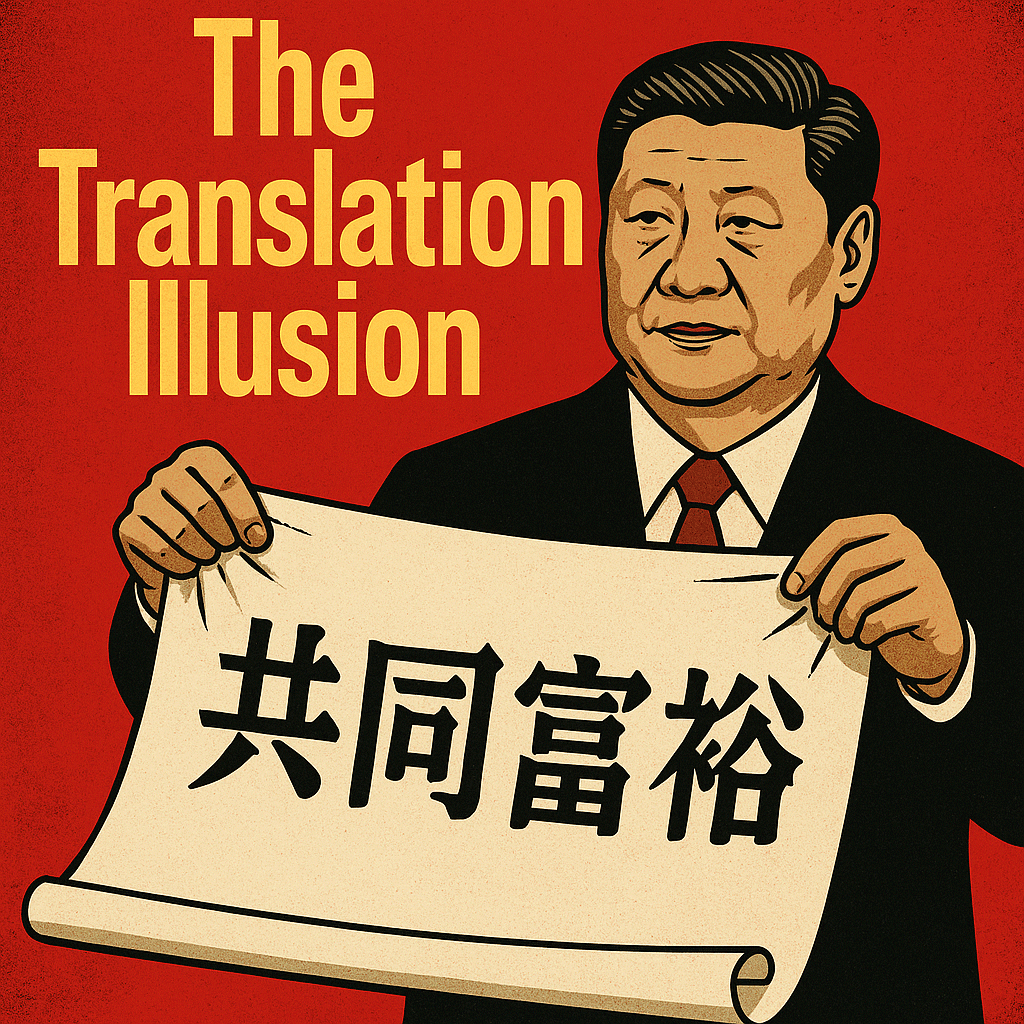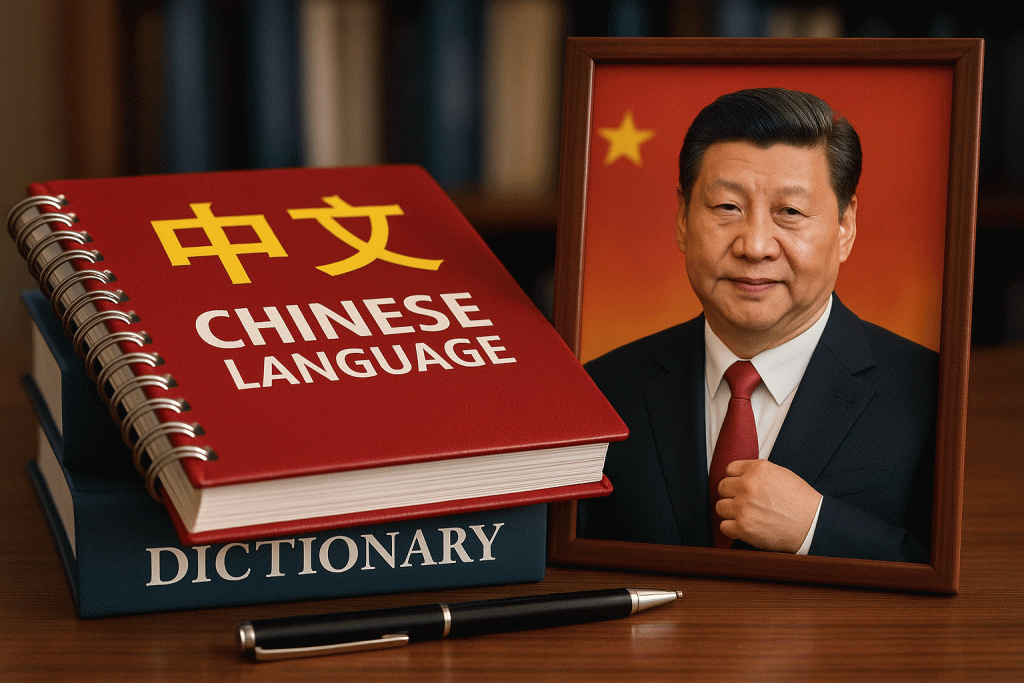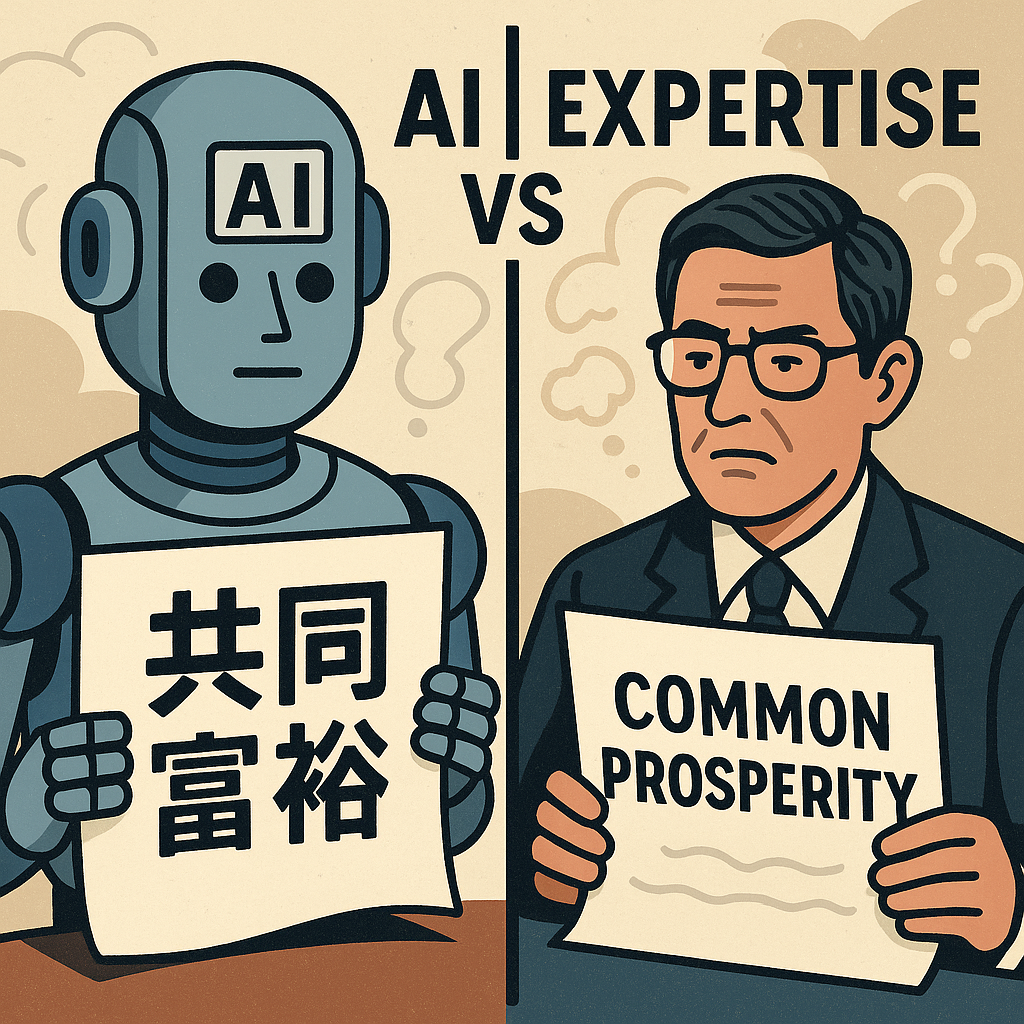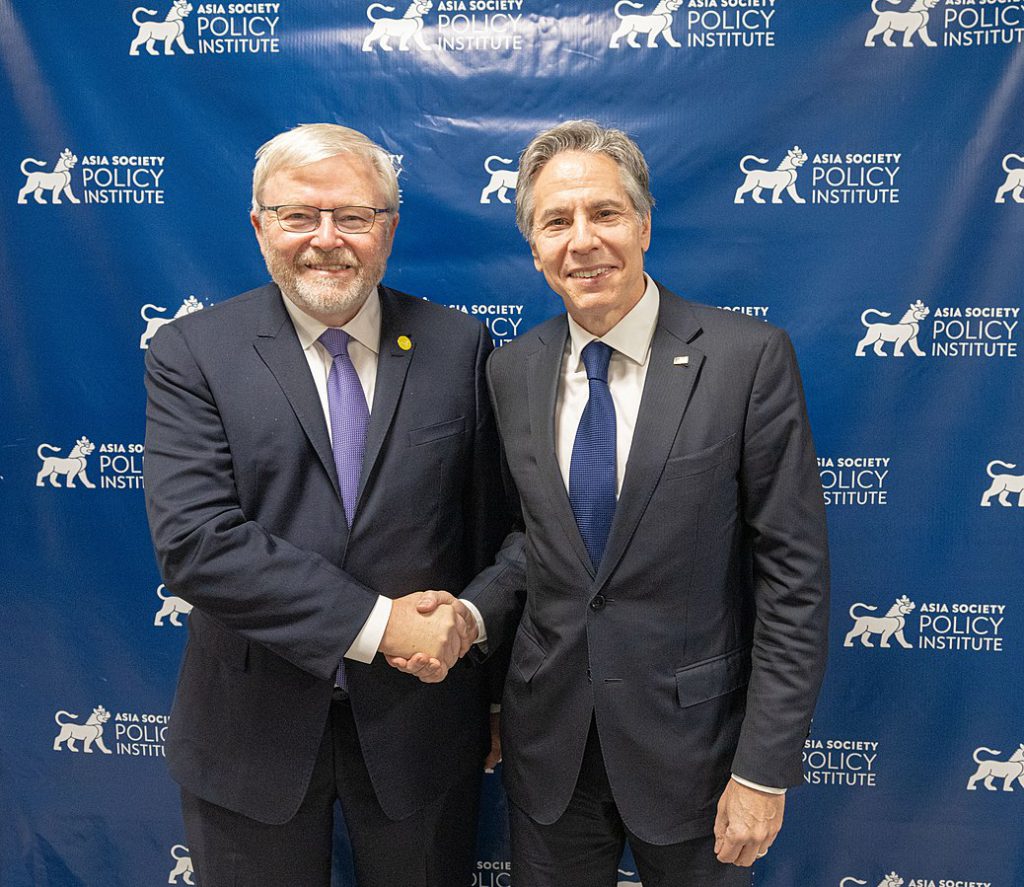Western governments have armies of Mandarin speakers and AI translators, yet they keep misreading Beijing. What’s missing, Stefan Messingschlager argues, is independent, context-rich expertise – people able to decode China’s history-laden signals and puncture bureaucratic groupthink. This kind of knowledge is the strategic insurance every democracy needs before the next crisis hits
When Xi Jinping unfurled his 'common prosperity' campaign in 2021, Western headlines quickly proclaimed a sudden 'Maoist turn'. Months later, politicians and investors feared Beijing’s tech-crackdown meant the Party was willing to sacrifice private enterprise for political control.

The West’s translation illusion: even armies of Mandarin speakers and AI tools cannot guarantee real understanding of Beijing’s political signals. True expertise is more than language or data – it’s context and judgement.
AI-generated image
Both judgments proved overheated. Yet these misreads reveal a deeper paradox: despite legions of Mandarin speakers, real-time satellite feeds, and oceans of open-source data, officials from Washington to Brussels still struggle to divine Beijing’s intentions. If any document can be instantly translated, why do these misinterpretations persist? And with so much internal expertise, what role remains for independent scholar-diplomats who once helped the West make sense of China?
History suggests we ignore independent expertise at our peril. During the Cold War, governments depended on a small circle of academic intermediaries to navigate a China that was linguistically opaque and physically closed.

During World War II, Harvard historian John King Fairbank balanced classroom teaching with wartime intelligence duties; in the early Cold War, he helped Washington decipher Mao’s China.
Photo: Wikimedia Commons
In West Germany, Sinologist Wolfgang Franke advised policymakers on Beijing’s ideological shifts years before diplomatic ties existed. These scholars provided more than translations – they offered the historical context, ideological nuance, and critical insight policymakers desperately needed.
Today’s landscape appears radically different. Ministries boast platoons of linguistic and sectoral specialists. Britain’s Foreign Office has more Mandarin-certified diplomats than it had French-speaking officials a generation ago. Berlin’s recent China strategy promotes 'whole-of-government competence', while Washington’s new State Department 'China House' integrates over sixty analysts from security, economics, and technology bureaux. On paper, the era of reliance on ivory-tower Sinologists seems to have passed.
Yet policy misjudgments persist. Western governments underestimated Xinjiang’s mass internment scale, misread Beijing’s resolve over Hong Kong, and were late to grasp China’s push toward semiconductor self-sufficiency – though Chinese sources had long telegraphed these developments. Clearly, raw information abundance does not translate automatically into strategic comprehension. Something deeper is missing.

To understand why, distinguish between competence and expertise. Think of it as competence = data + language; expertise = context + judgement. Competence means fluent translation, data literacy, or familiarity with Chinese bureaucracy. Expertise embeds data within the longue durée of Chinese political culture. A competent analyst notes rising local government debt; an expert recalls how similar fiscal stresses disrupted reforms in 1988 and nearly derailed Premier Zhu Rongji’s overhauls a decade later – judging today’s crisis as cyclical or regime-threatening.
AI translates the words – but only human expertise can interpret the political meaning behind China’s slogans.
AI-generated image

Why does this distinction matter when AI-powered translation mines millions of Chinese texts daily? Because algorithms flatten meaning. Mandarin is rich in political homonyms; identical phrases can signify obedience, irony, or dissent, depending on context. Automated parsing misses tone, historical allusion, and moral nuance – precisely the features Chinese politicians use to signal intention indirectly. Take 'common prosperity' 共同富裕. Western pundits feared a socialist revanche, yet Chinese officials stressed it was 'not egalitarianism' and 'not robbing the rich' – a dynamic policy framework to reduce inequality, not a confiscatory crusade.
Even in-house Mandarin experts face structural biases. Bureaucratic tempo favours rapid deliverables over reflection, career incentives discourage dissent, and compartmentalised clearance systems limit cross-sectoral insights. Institutional silos foster groupthink, obscuring vital insights.
Independent academics counterbalance these biases. First, they bring contextual memory. A historian tracing China’s fiscal reforms from the Qing dynasty’s salt-tax crisis to modern tax-sharing adjustments sees warnings invisible to short-tenure analysts. Second, independent scholars offer methodological pluralism. By blending ethnography, elite-network analysis and deep textual reading, they deliver a '3-D vision' of Chinese politics that spreadsheets alone cannot provide. Third, they provide critical distance.
Unburdened by electoral cycles or security clearances, independent experts candidly question policy orthodoxies – highlighting, for instance, that Western 'de-risking' rhetoric is meaningless without domestic industrial policies, or that uncoordinated sanctions risk driving Beijing closer to Moscow.
If external expertise remains essential, the challenge is how to integrate it without resurrecting gatekeeper elites. Three strategies stand out:
First, cultivate hybrid talent. Former Australian Prime Minister Kevin Rudd's fluent Mandarin made headlines, but more crucial was his fusion of language skill, historical training, and high-level policy experience. Governments should normalise mid-career training in intensive Chinese, rotations through Beijing or Shanghai, and joint academic-policy appointments.

Kevin Rudd, founding president of the Asia Society Policy Institute and former Prime Minister of Australia — now Australia’s ambassador to the United States — in conversation with then US Secretary of State Antony Blinken, Washington DC, 26 May 2022
Photo: Wikimedia Commons
Second, institutionalise intellectual porousness. A dedicated China-coordination office is valuable only if analysts regularly consult academics who challenge their assumptions. Confidential quarterly 'red-team' sessions between government analysts and outside experts – historians of governance, sociologists mapping WeChat rumours – test comfortable narratives before reality does.
Third, protect diaspora expertise. Ethnic Chinese scholars offer unmatched linguistic ease and cultural intuition. Yet Beijing’s transnational repression chills their participation. Western governments must treat harassment of diaspora experts as a national-security threat, offering legal protection and discreet collaboration channels. Diversity in China expertise is not merely inclusive; it is strategically necessary.
Maintaining independent expertise is costly: critical scholars often lose access to Chinese field sites, and funding arms-length institutes can provoke diplomatic retaliation – as Germany learned when the Mercator Institute for China Studies (MERICS) faced sanctions. Yet the alternative – relying solely on internal certainty – entails greater risk. Misreading China’s intentions on Taiwan, the South China Sea, or climate diplomacy could trigger strategic miscalculations with catastrophic consequences.
We no longer need isolated China-whisperers who singlehandedly decode Beijing. Instead, we require diverse ecosystems of independent expertise capable of challenging groupthink and illuminating blind spots. Investing in such expertise is like paying an insurance premium: modest up front, but invaluable in a crisis. The cost of cultivating independent China expertise may seem high, but the price of flying blind – and misreading Beijing at a critical moment – is immeasurably higher.